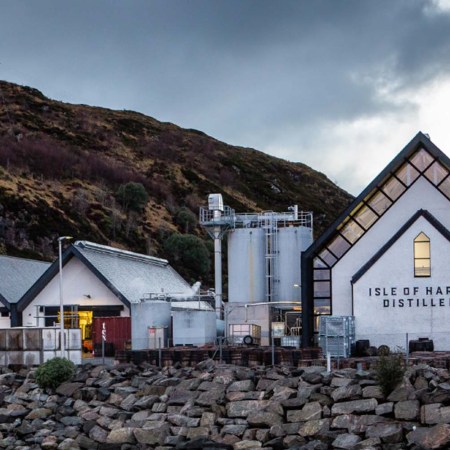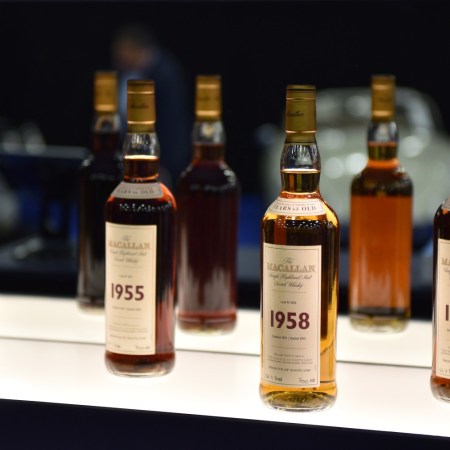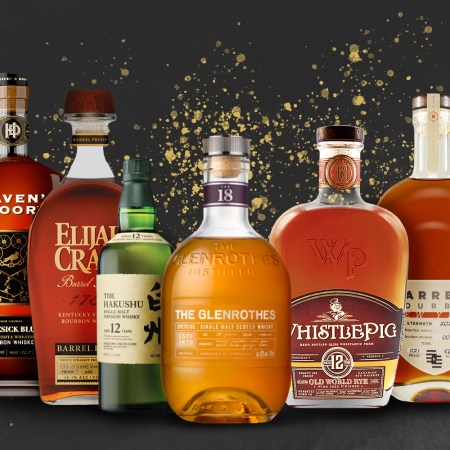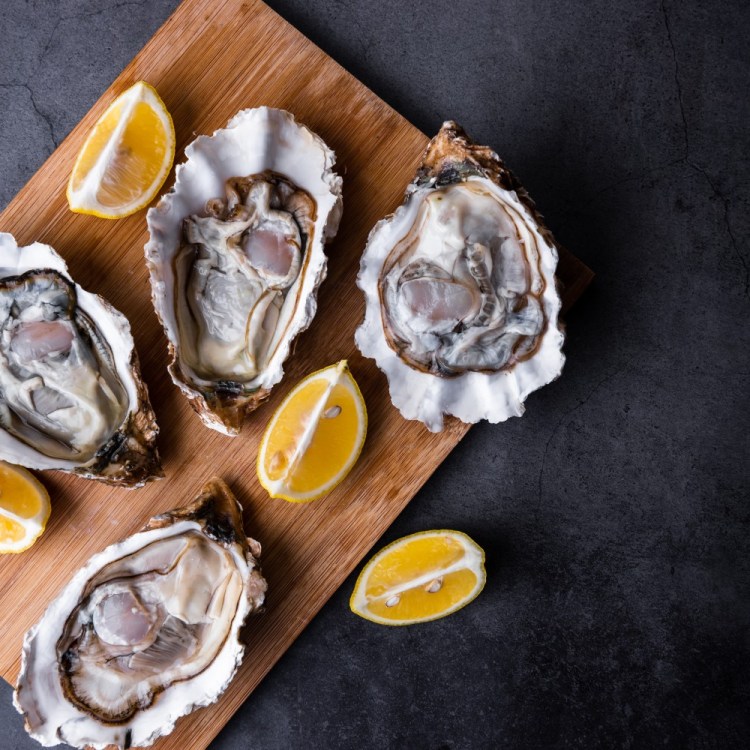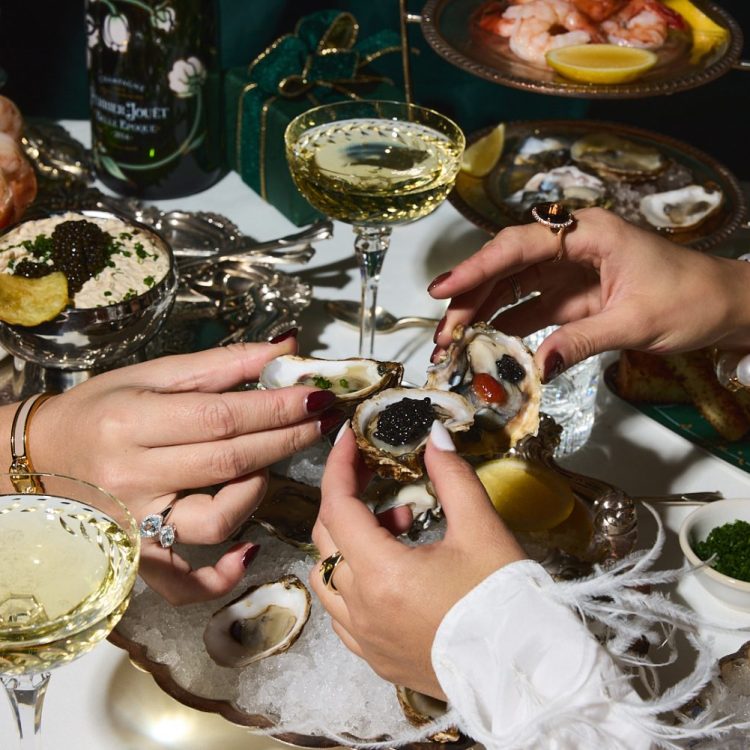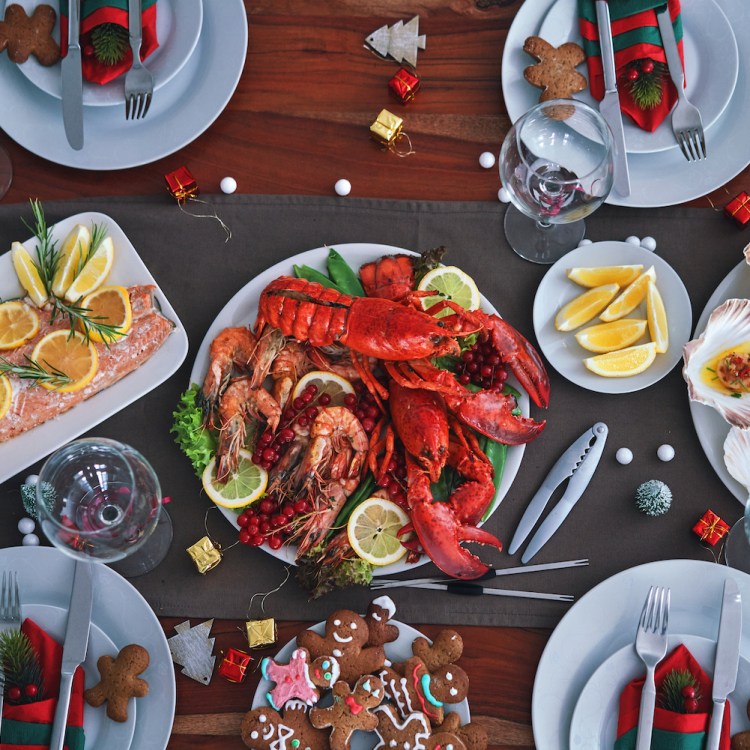Late last year, Crown Royal Northern Harvest Rye, a Canadian malt whisky, was awarded the top score and “Whisky of the Year” in Jim Murray’s Whisky Bible — beating out every Scotch, American bourbon and Japanese whisky on the market.
Reactions went as expected.
Shock! Horror! Outrage!
Followed by, of course, “Can I try it? “
For those not familiar with the spirits distilled by our friends up north (save for a two-four of Molson), Canadian whisky (no “e”) is seen as a blander but — paradoxically — less regulated cousin to the robust and strictly managed grain spirits produced here and abroad. Smooth: Yes. Challenging: No.
But that perception is about to change.
“We sell 17 million cases a year, so Canadian whisky is a large category in the U.S.,” explains Don Livermore, the master blender at Hiram Walker & Sons Limited in Windsor, where he oversees two prior Canadian Whisky of the Year winners. “We’ve just done a poor job telling our story.”
With that in mind, we sat down with Livermore for a few cocktails and some tastings of his whisky portfolio (and, to be fair, we also included a few of our Canadian favorites from outside of his purview).
A few takeaways before the sipping began:
Hiram Walker is the largest distillery in North America. Not Canada. All of North America. They can store 1.6 million barrels in their warehouses, which, as Livermore notes, take up the space of 96 hockey rinks.
You have to be smart to get into the Canadian whisky game. Livermore is a microbiologist, with a master of Brewing and Distilling from Heriot Watt University in Edinburgh.
It’s smooth for a reason. Displaced Scottish immigrants came over to Canada and the U.S., bringing their pots and many crafting a moonshine-like spirit. To get rid of the “swampy” taste, crafters in the mid-1800s began distilling it twice, through two column stills. Hence the smooth heritage of Canadian whisky.
Rye gives it the characteristic spicy kick. “It’s like the pepper on the corn cob,” says Livermore, who notes early on that distillers added rye (which grows well in rocky terrain, and works as a cover crop for tobacco fields) into double-distilled corn whiskey to add a bit of spice.
How much rye? “It’s irrelevant,” says Livermore. “If it’s 100% rye and I put it through the still again, I strip out its flavor. Think of us as brewers: we can concentrate out different characters.”
The Civil War made Canadian whisky very popular in the U.S. Because our distilleries were in the South. “Who took advantage? Canadian whisky makers.”
Whisky shaped Canada. “The No. 1 taxpayers in Canada (used to be) the distilleries. Income tax didn’t start until 1917. So it was really the distilleries that built the highways and communities.”
Canadian whisky was the first to mandate aging. Thanks to government regulation (and a possible desire to control production and revenue), Canadian whisky started a minimum aging requirement 25 years before Scotch or Irish whiskey.
It’s hard to enter the Canadian market. Livermore notes that Canada has only 1/10th the population of the U.S., and has several business regulations. Which is why there are only 6-7 major players and maybe 15 craft distilleries within the country.
Canadian whisky is its own thing: “We’re the opposite of bourbon,” says Livermore. “We ferment corn, rye and barley separately, age them separately and put them together at the end. Bourbon does it at the start. By separating, it’s easier to create different recipes.”
What makes Canadian whiskey better than Scotch and Irish whisky? “It’s the most innovative category,” says Livermore. “All Canadian whisky has to be is 40 percent alcohol, made of grain, fermented/aged/distilled in Canada and aged in wooden barrels less than 700 liters for a minimum of three years. And it doesn’t say what type of wood — which is more important than age. That’s it. I can change barrel type, distillation method, whatever.”
Don’t believe the lies, eh. “You can’t add neutral grain spirits to our whisky. That’s a misnomer. We have to age for three years.”
ABV will affect your taste: More of a general statement on whiskies, but Livermore notes that, “At higher proofs, the wood and grain comes out, the lower is the fruitier and floral notes.”
Flavored Canadian whisky is coming. Maybe. “We do a spiced vanilla. It complements the notes already found in whisky. And, only in Canada, we do a dry-hopped whisky that almost tastes like a Guinness.”
Now then, here are six Canadian whiskies you should try posthaste:
J.P. Wiser’s Rye
A traditional Canadian whisky based on a recipe from 1869. It’s rye-forward, aged 5-9 years, exceptionally smooth and great for cocktails (we had ‘em in a whisky and Coke). A good intro to the rye category.
Lot No. 40
Aka the Canadian Whisky of the Year. Made of 100% rye, aged 5-9 years in virgin white oak barrels. “It gives you a gut feeling in the chest,” says Livermore. “This is what you graduate up to.”
J.P. Wiser’s 18 Years Old
Smooth, with hints of … apple? “In Windsor, it gets as hot as Louisville but 20 degrees colder in the winter,” explains Livermore. “So the whisky is expanding and contracting in the barrel. There’s a chemical reaction that gives it a green apple character. You’ll see it in highly aged Scotches, but it’s buried under the peat. In bourbon, it’s buried under the yeast flavors.”
Pike Creek
Aged 10 years, with hints of green apple, but also taken out of the barrel and put in a port barrel, giving it a bit of ruby red color and notes of dried fruit. A solid sipper with a peppery note that hits harder on the tongue than the chest.
Nota bene: Two other Canadian whiskies of note include recent award-winner Crown Royal Northern Harvest Rye, of which Whisky Bible author Jim Murray notes, “[The rye here] is not just turning up to charm and enthrall, but to also take us through a routine which reaches new heights of beauty and complexity. To say this is a masterpiece is barely doing it justice.” Also: Spicebox, a spiced whisky with a pronounced vanilla profile that won’t win many awards, but sips well during the cold winter months.
Join America's Fastest Growing Spirits Newsletter THE SPILL. Unlock all the reviews, recipes and revelry — and get 15% off award-winning La Tierra de Acre Mezcal.
